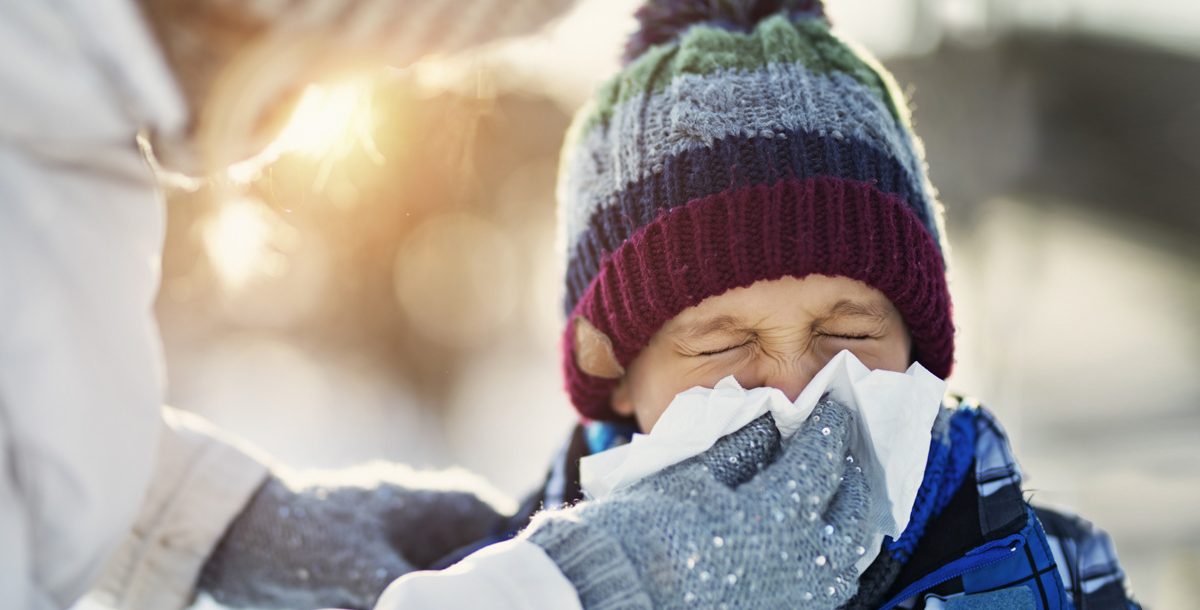Nicholas Schey, M.D., pediatrician at Bon Secours, shares important facts and provides tips to help keep your kids feeling well during the winter season, as well as throughout the year.
Colder weather and the common cold
Colds are associated with winter as it’s the time of year when cold viruses are spreading, and people are feeling under the weather.
Cold viruses are spread from person to person. Since most cold viruses are spread through close contact, it’s best to have your kids steer clear of individuals who are coughing and sneezing.
“Of all the tips and tricks out there for avoiding colds, the only proven safe way to prevent children from getting sick is to avoid germs,” says Dr. Schey. “Stay away from sick people when possible, don’t share food or drink, and wash hands often, especially before eating.”
And no, you can’t catch a cold from going out into the cold. That’s a common myth.
“A young child might get up to 10 colds per year or more, especially if they are in daycare or school,” says Dr. Schey. “Unless they are getting serious complications like pneumonia or sinus infections, getting the common cold frequently is not a sign of a problem with the immune system.”
There are no specific treatments for a common cold as they are viruses and antibiotics will not work. The body and immune system have to fight off the cold.
Typically for a mild cold, your child should start feeling better within about 10 days. Here are some tips to help speed up their healing process:
- Have your child drink warm liquids.
- Use saline drops and nasal sprays.
- A bulb suction (for younger children) can help remove mucus.
- Thin out the air in your child’s room with a humidifier.
- Keep your child hydrated.
- Make sure your child is getting enough rest.
“For children less than 6 years old, it’s best to avoid cough and cold medicines,” Dr. Schey advises. “They tend to not work well, and they can cause serious side effects.”
Except in young infants, a fever itself is not an emergency. A fever will not harm your child so avoid rushing to the emergency room or urgent care unless your child seems extremely sick. However, it’s probably a good idea to make an appointment with your child’s doctor if they have a fever.
The following situations are other times you should reach out to your child’s medical provider:
- Fever – especially younger children or if a child has a fever for more than five days
- Difficulty breathing
- Trouble keeping food down
- Having more than mild pain, such as ear pain or sore throat
“Many colds do not require a visit to the doctor,” says Dr. Schey. “If you’re ever in doubt, call a Bon Secours office for advice. We are always happy to see a child if a parent has any concern that their child might have something more serious.”
Healthy habits all year long
Maintaining healthy habits and making them a part of your child’s routine can help them stay healthier all year long. Furthermore, ingraining these habits at a young age will help prepare them to lead healthier lives as adults.
Here are some healthy habits to add to your child’s daily schedule:
- Eating nutritious foods
- Getting enough sleep
- Exercising
- Staying hydrated
- Practicing good dental habits
- General hygiene, such as regular handwashing
Learn more about the pediatric services we provide at Bon Secours.





